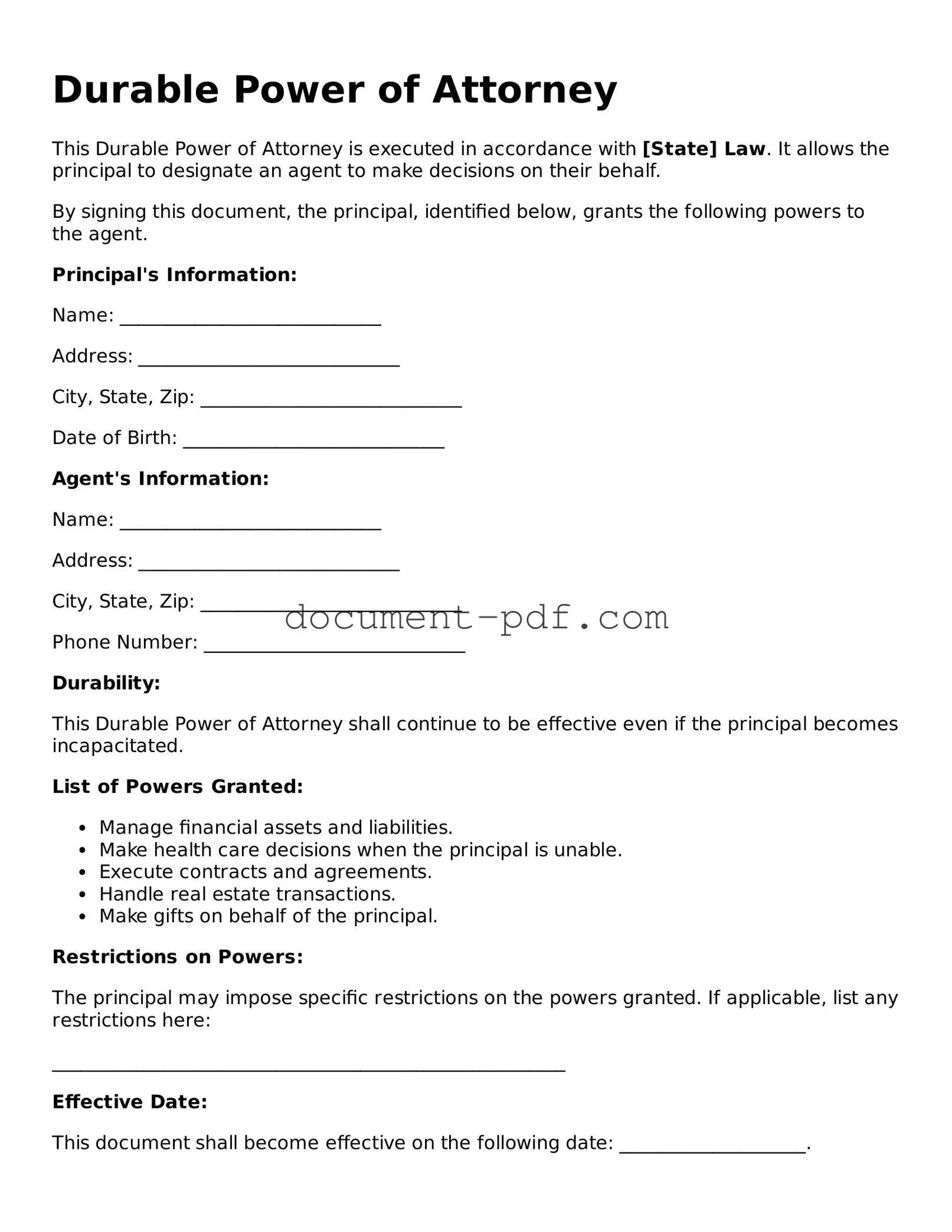Attorney-Approved Durable Power of Attorney Document
A Durable Power of Attorney form is a legal document that allows an individual to appoint someone else to make decisions on their behalf, especially in financial or medical matters, when they are unable to do so themselves. This form remains effective even if the person becomes incapacitated, ensuring that their wishes are respected and their affairs are managed. Understanding the importance of this document is crucial; take action now by filling out the form below.
Access Durable Power of Attorney Editor Here

Attorney-Approved Durable Power of Attorney Document
Access Durable Power of Attorney Editor Here
Finish the form without slowing down
Edit your Durable Power of Attorney online and download the finished file.
Access Durable Power of Attorney Editor Here
or
Click for PDF Form
